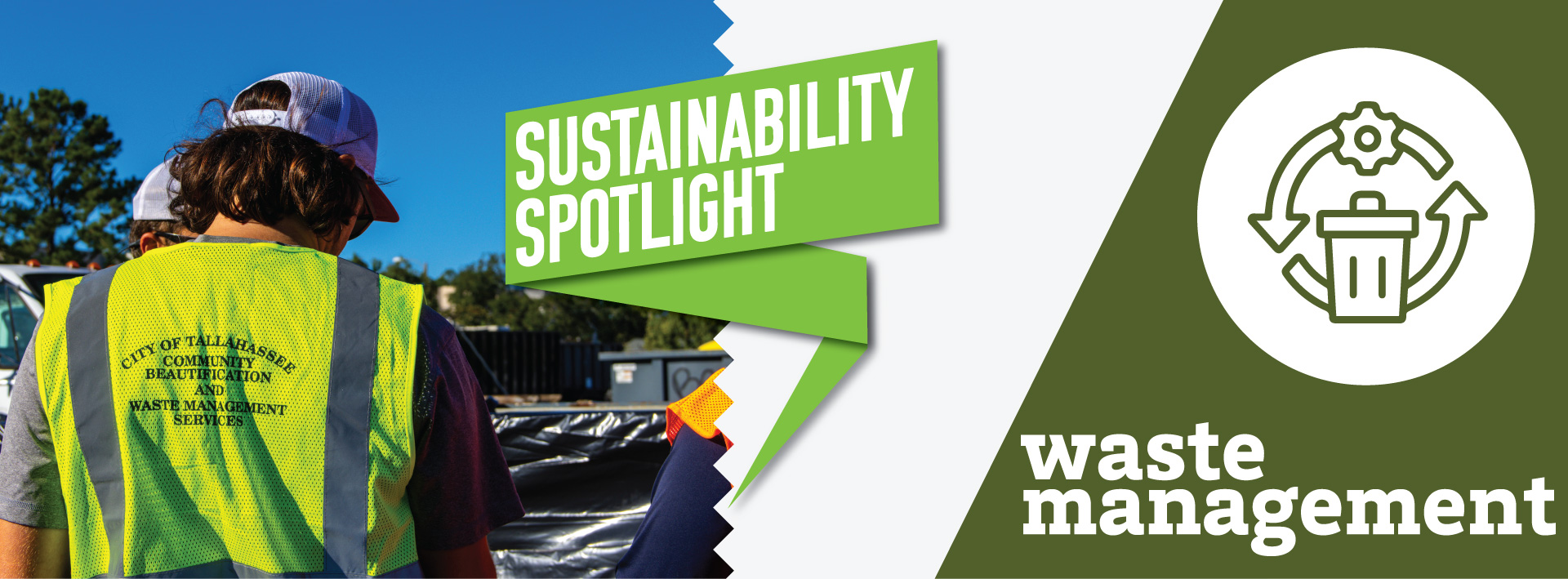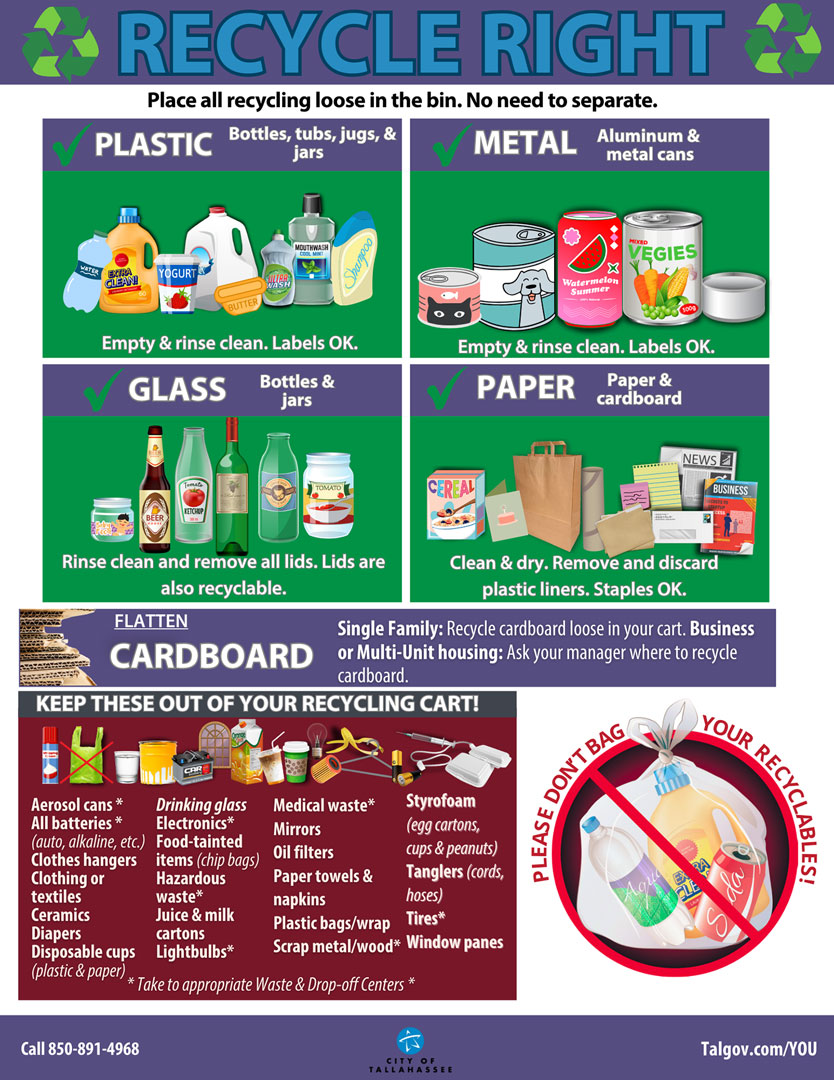Sustainability Spotlight: Waste Management

Waste Management
GOAL: Decrease the amount of solid waste generated within the City’s solid waste service area.
FOCUS AREAS:
- Education and Awareness
- Waste Reduction and Composting
- Reuse
- Recycling
Recycling
Through the City’s single-stream recycling pick-up service, residents and businesses can easily divert their recyclables from the landfill without the need to pre-sort materials. While single-stream recycling is convenient, it’s important for customers to only include recyclable materials in the bin.
10,192+ tons of material diverted from the landfill through recycling in FY24

Cash for Trash

For materials not suitable for recycling or garbage barrels, the City hosts biannual Cash for Trash events. Residential solid waste customers with an active refuse account receive a $5 credit on their utility bill for bringing bulky and household hazardous waste to these events. In 2024, the program serviced over 900 customers and collected:
- 5.5 tons of tires
- 17 tons of bulk waste
- 21 tons of household hazardous waste
- 12 tons of electronics
Solid Waste Management
The City of Tallahassee offers comprehensive waste management services as detailed in the annual Customer Service Guide. In addition to weekly garbage and recycling pickup services, the City offers:
- Biweekly pickup of yard waste and bulky items
- Helping Hands program for residents who are physically unable to place their garbage and recycling containers by the curb
- Special pickups of electronics, other bulky items and construction and demolition debris
Waste Reduction
The City implements innovative waste reduction and reuse strategies across multiple City departments. In 2024, some of those measures included:
-
2,700 cubic yards of wood chips from utility maintenance delivered free of charge to residents for reuse in gardens and landscapes
- 3,500 tons of Class AA biosolids, a highly treated byproduct of the wastewater reclamation process, sold in bulk to golf courses, farmers and fertilizer bagging companies to be used as a fertilizer supplement or soil amendment
- 9,750 gallons of biofuel produced from used cooking oil collected from area restaurants and residents. The used cooking oil is cleaned and processed into a cleaner-burning biofuel for use in City vehicles. Residents may donate clean, used cooking oil at the City’s Fleet Management facility at 400 Dupree Street or the Waste Management facility at 2727 Major James Morgan Jr. Way.
- 3,500 tons of construction debris reclaimed for use in various projects including new construction, road and sidewalk base material and backfill for pipe stabilization, resulting in an estimated $26,000 savings
Additionally, food waste from several City offices continues to be composted, resulting in less waste going to landfills. The processing of organic waste into compost reduces greenhouse gases associated with aerobic decomposition in landfills and increases the soil's carbon sequestration capacity.